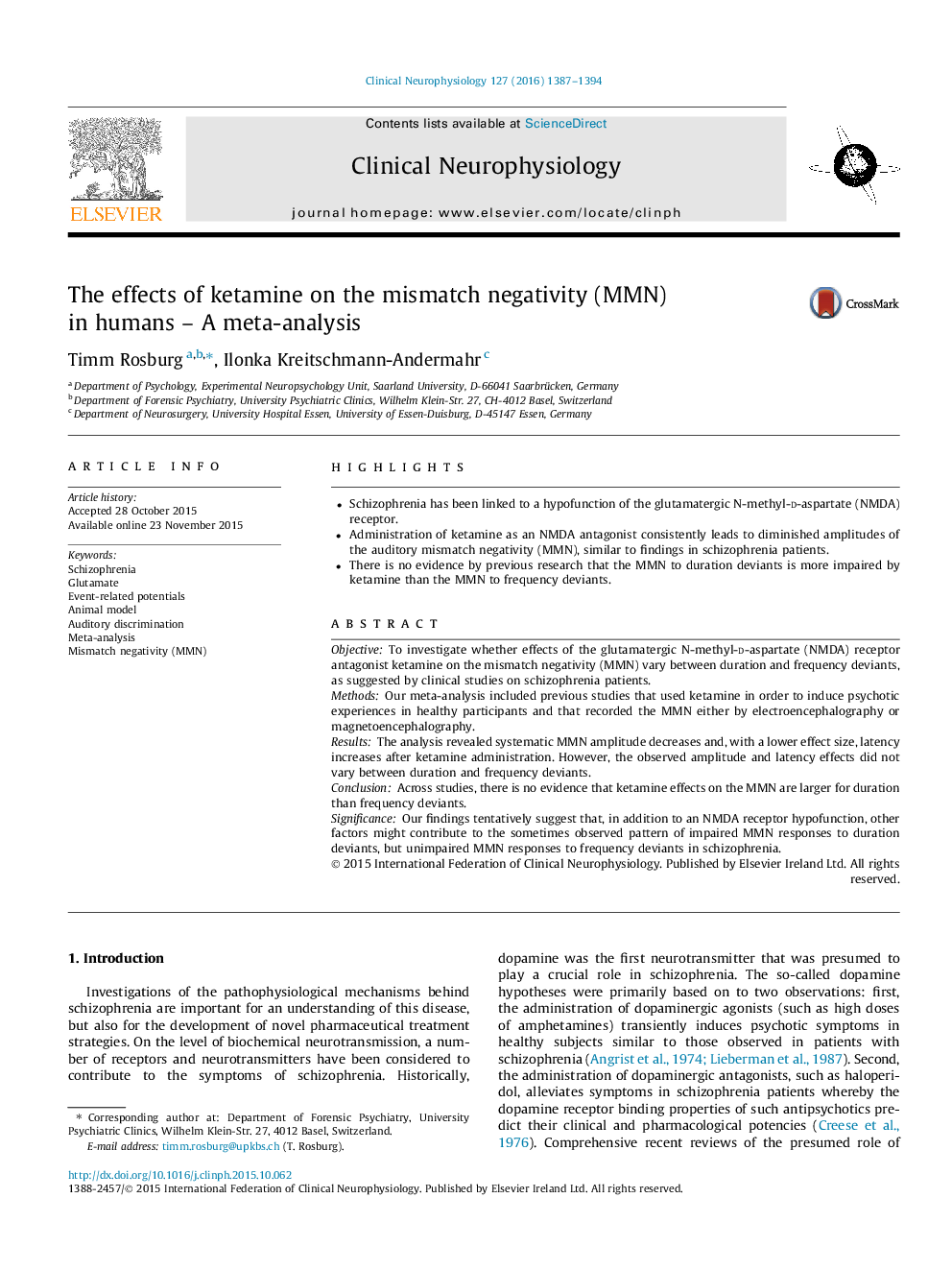| Article ID | Journal | Published Year | Pages | File Type |
|---|---|---|---|---|
| 6007599 | Clinical Neurophysiology | 2016 | 8 Pages |
â¢Schizophrenia has been linked to a hypofunction of the glutamatergic N-methyl-d-aspartate (NMDA) receptor.â¢Administration of ketamine as an NMDA antagonist consistently leads to diminished amplitudes of the auditory mismatch negativity (MMN), similar to findings in schizophrenia patients.â¢There is no evidence by previous research that the MMN to duration deviants is more impaired by ketamine than the MMN to frequency deviants.
ObjectiveTo investigate whether effects of the glutamatergic N-methyl-d-aspartate (NMDA) receptor antagonist ketamine on the mismatch negativity (MMN) vary between duration and frequency deviants, as suggested by clinical studies on schizophrenia patients.MethodsOur meta-analysis included previous studies that used ketamine in order to induce psychotic experiences in healthy participants and that recorded the MMN either by electroencephalography or magnetoencephalography.ResultsThe analysis revealed systematic MMN amplitude decreases and, with a lower effect size, latency increases after ketamine administration. However, the observed amplitude and latency effects did not vary between duration and frequency deviants.ConclusionAcross studies, there is no evidence that ketamine effects on the MMN are larger for duration than frequency deviants.SignificanceOur findings tentatively suggest that, in addition to an NMDA receptor hypofunction, other factors might contribute to the sometimes observed pattern of impaired MMN responses to duration deviants, but unimpaired MMN responses to frequency deviants in schizophrenia.
